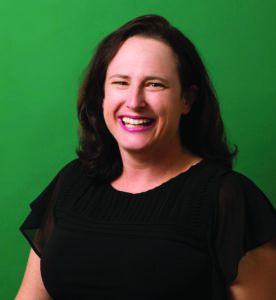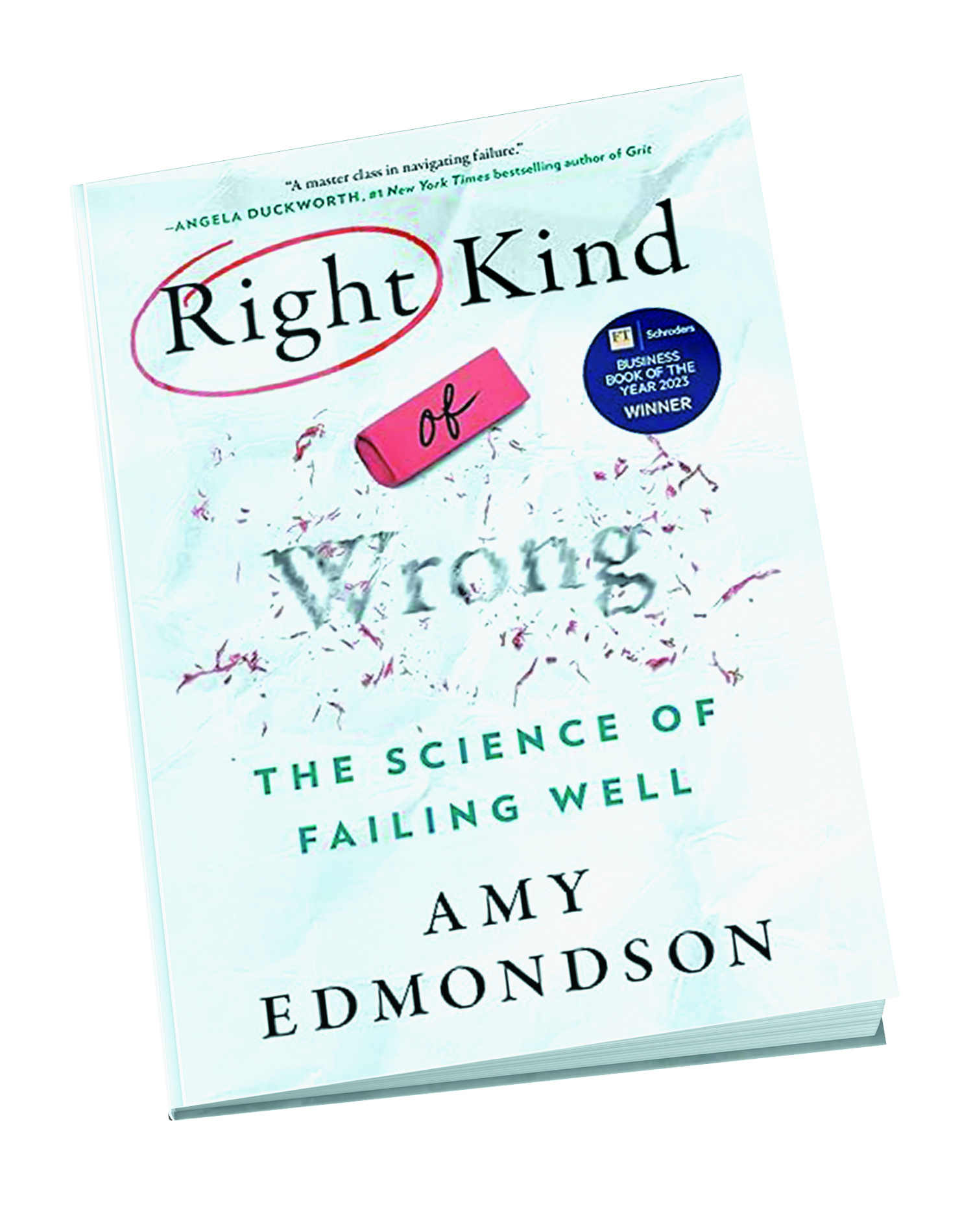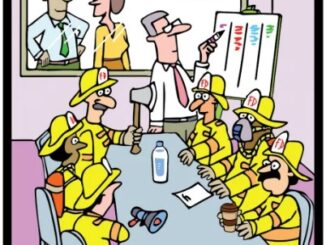
Reviewed by Jodi McGee, Chief Insights Officer Inquisitive Insights Greater Philadelphia area, Pennsylvania
jodi@inquisitiveinsights.com
“Thriving as a fallible human being also means learning to fail well: preventing basic failures as often as possible, anticipating complex ones so as to prevent or mitigate them, and cultivating the appetite for more frequent intelligent failures.”
When great minds like Daniel Pink, Adam Grant, Angela Duckworth, and Edwin Catmull all say, “read this book,” you know what I do? I read it. This is how The Right Kind of Wrong by Amy Edmondson made its way onto my reading list.
The book examines our relationship with failure. It normalizes failure and gives us a framework to practice failing well and failing wisely. By the end of the book, Edmondson has offered strategies about how to learn from failure and how to create cultures where being “the right kind of wrong” is celebrated—as in the well-established model of high-reliability organizations (HROs), embraced by organizations like NASA, nuclear power plants, and the FAA, that create a culture of vigilance, mindfulness, and open discussion of vulnerabilities and errors to maintain safety in environments of high risk and complexity.
Edmondson sets the stage by pinpointing three barriers to failing well: aversion, confusion, and fear, writing, “Our aversion to failure, confusion about failure types and fear of rejection combine to make practicing the science of failing well more difficult than it needs to be.”
Following this observation, Edmondson shares illustrative examples as well as solutions for overcoming these obstacles:
- To counteract aversion (our instinctive emotional response), she suggests that we reframe the situation. She offers as an example a study of Olympians, which found that bronze medalists felt more joy than silver medalists because they viewed their result as “I made the podium” instead of “I came so close to winning gold.”
- To counteract confusion, Edmondson offers a framework to discern between failure types: basic, complex, intelligent.
- To counteract fear, she reveals the importance of psychological safety and how its presence/absence can directly impact the ability to learn from failures.
Edmondson was inspired to write this book following her own research failure; her graduate work studying the impact of teamwork on errors in a healthcare setting did not support the hypothesis she set out to prove. I found it refreshing that she called out the unique relationship researchers have with failure:
“This surprise finding—this failure—would lead me gently to new insights, new data, and follow-up research projects that saved and changed the course of my academic career . . . I would also begin to understand how success as a researcher necessitates failure along the way. If you’re not failing, you’re not journeying into new territory.”
This is a fabulous reminder to our community of researchers and those who use research to make decisions about products, services, experiences, and brands to be open to the unexpected or failures in our work. I’d recommend the book to clients and colleagues with the caveat that this book will be less radical to our industry than to others. After all, we are in the business of establishing psychological safety, unpacking things to learn and understand, and “celebrating the pivot” instead of feeling ashamed or disappointed in results that weren’t the ones we expected.
I was particularly fond of the quotes Edmondson curated and used to introduce each chapter. They were a clever way to illustrate that failure is indeed universal and that those who embrace failure as an opportunity to learn go on to do great things. A few gems:
- “Success is stumbling from failure to failure with no loss of enthusiasm.” —Winston Churchill
- “I have not failed. I have just found 10,000 ways that won’t work.”—Thomas A. Edison
- “We cannot direct the wind, but we can adjust the sails!”—Dolly Parton
This book is an opportunity to reflect on your own assumptions about failure and get better at taking intelligent risks and learning from mistakes—skills that will always come in handy for researchers.




